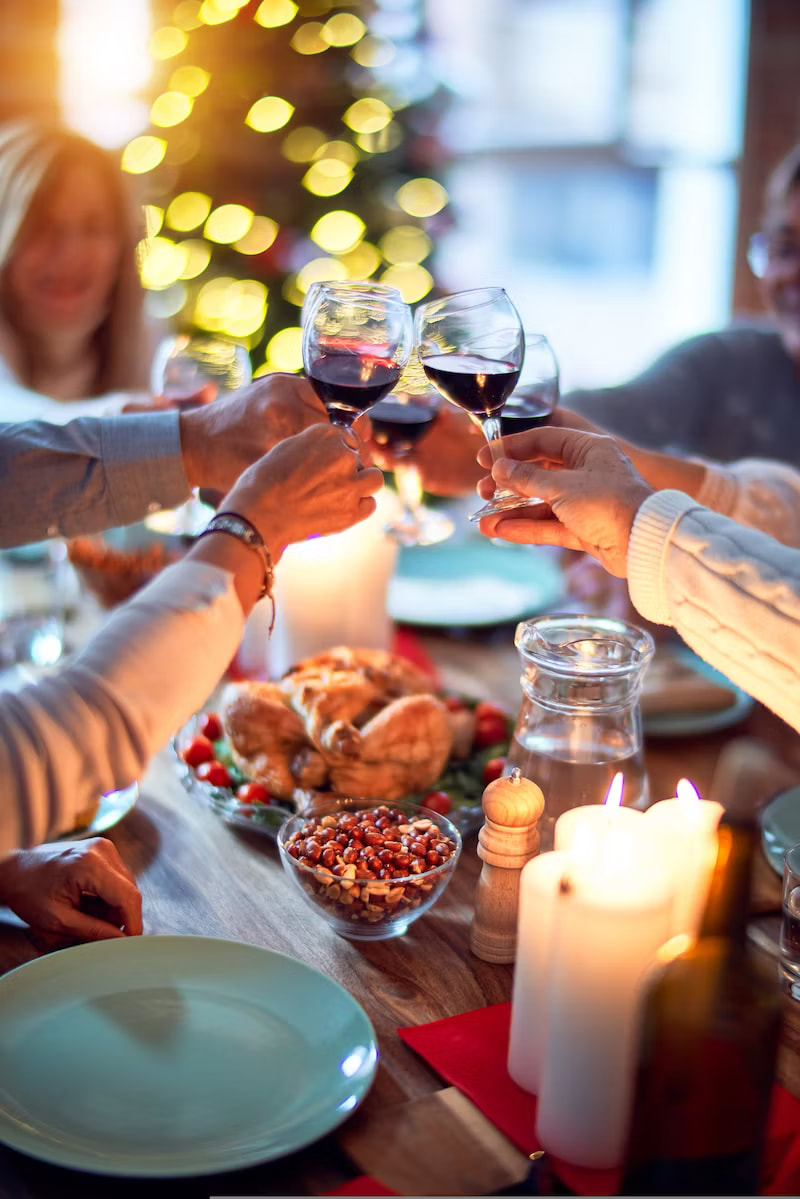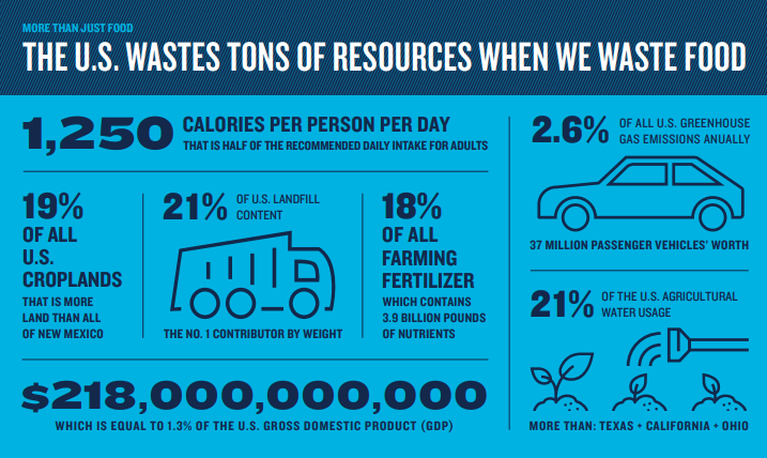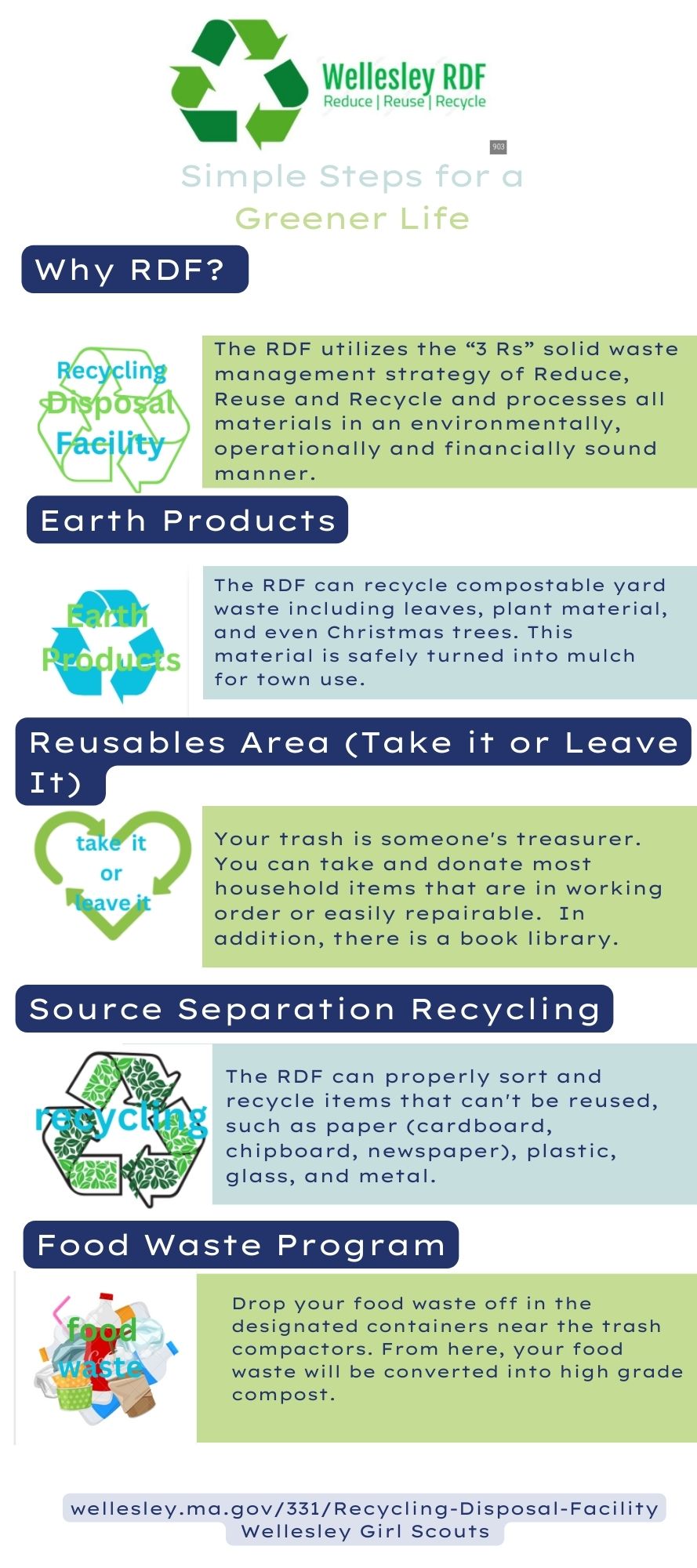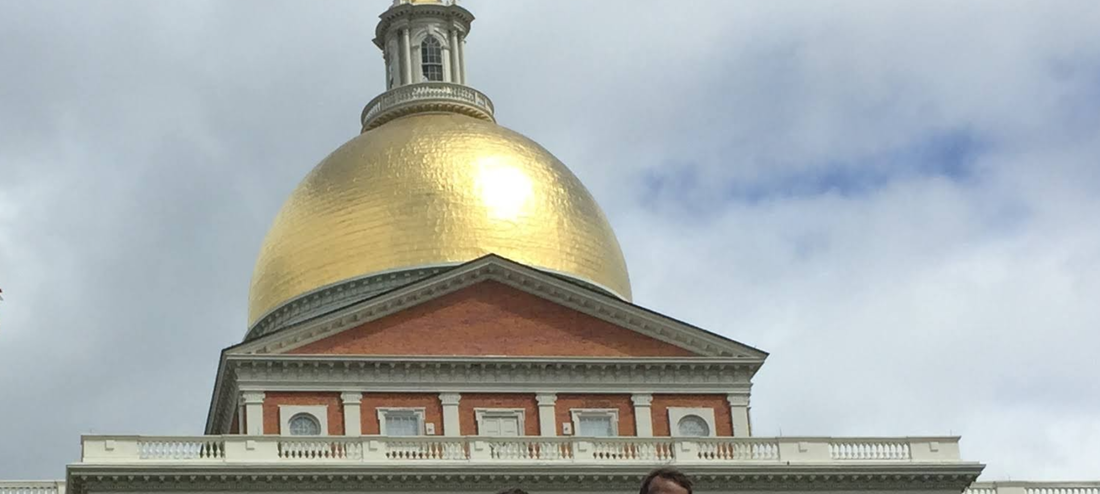|
Great ideas from RecycleSmart MA
With the holiday season fast approaching, we would be remiss if we didn’t talk about the topic on all of our minds…. food. Despite our love of Thanksgiving leftovers – it turns out we aren’t that good at gobbling up all of our food, especially at the holidays. Each year we throw out over 200 million pounds of turkey alone during the week of Thanksgiving[1]. Over the course of a year, up to 40% of the food in the U.S. goes uneaten[2] – food that could have benefited the one in 11 Massachusetts residents that is considered food insecure[3]. The good news is that there are simple things we can all do to decrease wasted food (and save money). Here are 5 tip to reduce our “foodprint” during the holidays:
Remember that food and liquids do NOT belong in the recycling bin. Wasted Food Facts that will Floor You!
[1] Cabrera, Yvette. “Giving Thanks and Wasting Less,” Natural Resources Defense Council, Nov. 2019, https://www.nrdc.org/experts/yvette-cabrera/giving-thanks-and-wasting-less [2] Gunders, Dana. “Wasted: How America is Losing Up to 40 Percent of Its Food from Farm too Fork to Landfill,” Natural Resources Defense Council, NRDC Issue Paper, Aug. 2012 IP:12-06-B [3]New Data Shows Cost of Food in Massachusetts Highest in United States, The Greater Boston Food Bank, May. 2019, https://www.gbfb.org/news/press-releases/cost-food-massachusetts/ For their Silver Award, Wellesley Girl Scouts Elise McDonough, Hadley Grover, and Vivi Dublin worked with Wellesley's Recycling and Disposal Facility (RDF) to create this information pamphlet to pass out to new families moving into town, informing them of all that the RDF offers.
"We wanted to create awareness of the benefits of recycling in our town," the Scouts said. "The RDF takes our recycled items and sells them, making money that they give back to our community. Wellesley also has a Reusables Area, known as the 'Give and Take' area. Here you can drop off items in good condition, and then other residents can then take them, for free. All of these efforts reduces landfill," the Scouts said. Kudos to these students for making this 'Creating Simple Steps for a Greener Life' pamphlet that realtors can hand out to new homeowners. They are obviously proud to show off the benefits of recycling and using our town’s RDF. Although the pamphlet is targeted to new and existing residents, they also want folks to know that any Wellesley business with surplus cardboard and plastic, should bring it to the RDF as well as it is very valuable to Wellesley. Please share this and use it, so that we can keep things out of landfill. Thank you to Elise, Hadley Grover, and Vivi. Tell Your Legislator that Companies Should Have a Stake in Recycling Their Products - TODAY!6/22/2021
FROM GREEN NEWTON:
A hearing on three bills regarding manufacturer funded recycling programs will take place in the Massachusetts State Legislature from 1-5pm on June 22. Passing these bills on extended producer responsibility (EPR) for paint, mattresses, packaging, and paper would help defray the cost of disposing of or recycling these items that cities and towns in Massachusetts currently bear. It would also set a precedent in Massachusetts for a better way to manage the items that are thrown away each year. The three bills are:
What is Extended Producer Responsibility? Extended Producer Responsibility (EPR) legislation makes manufacturers have a stake in recycling the products and packaging they generate. An EPR bill would create a fund to cover the cost of recycling and incentivize companies to make their packaging more recyclable. Why is EPR needed? Municipalities have little power to control the barrage of materials flooding the Commonwealth but are responsible for managing recycling and disposal.
Extended Producer Responsibility has been tested and proven in countries all over the world.
|
Categories
All
|
Sign up for updates! |
Contact |
Support us! |
Follow us!Copyright © 2024 By Sustainable Wellesley
|





 RSS Feed
RSS Feed